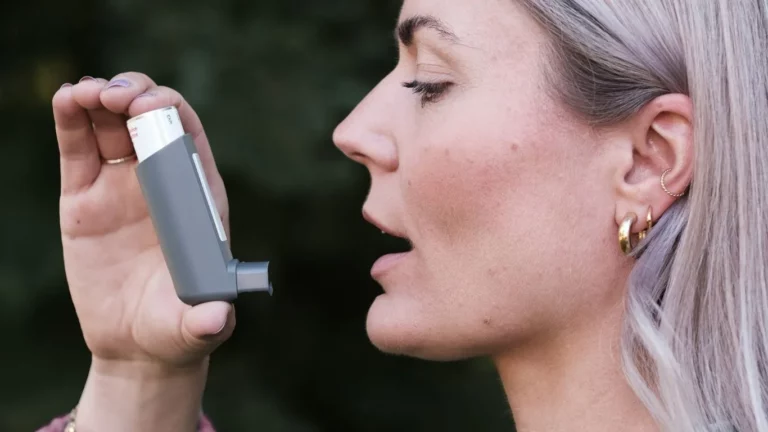Smart Ways to Manage GERD While Dealing with Weight Gain Challenges
It’s one thing to deal with heartburn every now and then. But when your clothes start fitting tighter and reflux becomes a daily problem, something’s up. I’ve been there—juggling creeping weight gain and that nagging, burning sensation after meals. Turns out, there’s more than just coincidence at play. Understanding how GERD and weight gain interact can help you manage both before things spiral.
Why Weight Gain Often Makes GERD Symptoms Worse

Let’s clear something up: not everyone who gains a few pounds will develop GERD. But if you already deal with reflux—or if your weight tends to collect around your midsection—there’s a strong chance the extra pounds could aggravate your symptoms.
Here’s the connection: as weight builds, especially in the abdominal area, it increases pressure on your stomach. That pressure makes it more likely for acid to rise back into the esophagus, especially when lying down or after meals. This isn’t just speculation; medical research supports the link between central obesity and gastroesophageal reflux disease.
For a deeper dive into how obesity contributes directly to reflux conditions, check out this comprehensive guide on obesity and acid reflux.
Subtle Signs Your Weight Gain Is Fueling Reflux

One of the trickiest things about GERD is how it sneaks up. For me, it wasn’t just the heartburn—it was the bloating, the need to clear my throat constantly, and the fatigue from poor sleep. When my pants got tighter and symptoms worsened, the dots connected fast.
Clues to Watch For
- Heartburn flares after meals, especially fatty or heavy ones
- Feeling unusually full or bloated, even after small portions
- Difficulty sleeping flat without discomfort
- More frequent use of antacids than usual
These are your body’s way of waving a red flag. While short-term fixes might help, long-term relief often lies in weight-conscious choices that support better digestion.
Simple, Digestive-Friendly Habits That Actually Help

You don’t have to overhaul your entire life to feel better. The key for me was adopting realistic habits—not strict diets or impossible routines.
Start with These Everyday Fixes
- Portion awareness: Large meals = bigger reflux risk. Break them into smaller, frequent meals.
- Meal timing: Finish eating 2–3 hours before lying down or going to bed.
- Hydration shift: Sip water throughout the day, not during meals, to avoid stomach distension.
- Move more: A walk after dinner helped me reduce post-meal flare-ups significantly.
If emotional eating plays a role, consider adding a journaling habit to track when symptoms spike—mine often followed stress-driven snacking late at night. That little insight helped me build better boundaries around meals and stress triggers.
Healthy Weight Management Without the GERD Triggers

Weight loss for GERD isn’t about a perfect number on the scale—it’s about reducing the pressure on your digestive system. But ironically, some common “diet” foods can actually worsen reflux.
What to Focus On Instead
- Lean proteins like grilled chicken, fish, or tofu
- Low-acid fruits like melons, pears, and bananas
- Cooked veggies (not raw salads) during flare-up phases
- Whole grains like oatmeal, brown rice, or quinoa
Foods high in fat, spice, or acidity—like fried snacks or tomato-based sauces—tend to make GERD worse. Keeping a personalized list of trigger foods helped me figure out what to avoid without sacrificing taste.
Managing Both Takes Time—But It’s Worth It

GERD and weight gain can feed off each other in a frustrating loop. But breaking that cycle is absolutely possible. What worked for me wasn’t perfection—it was progress. I didn’t lose weight overnight, and I still get the occasional flare-up. But the difference in my energy, sleep, and confidence? Huge.
Start with small wins: change one habit, tweak one meal, go for one walk. You’ll be amazed how much better your digestion feels—and how much easier weight management becomes when your body isn’t constantly battling acid.
And if you need help decoding your reflux symptoms or planning reflux-safe meals, check out this helpful guide on digestive-friendly diet plans that actually work long-term.

Camellia Wulansari is a dedicated Medical Assistant at a local clinic and a passionate health writer at Healthusias.com. With years of hands-on experience in patient care and a deep interest in preventive medicine, she bridges the gap between clinical knowledge and accessible health information. Camellia specializes in writing about digestive health, chronic conditions like GERD and hypertension, respiratory issues, and autoimmune diseases, aiming to empower readers with practical, easy-to-understand insights. When she’s not assisting patients or writing, you’ll find her enjoying quiet mornings with coffee and a medical journal in hand—or jamming to her favorite metal band, Lamb of God.







